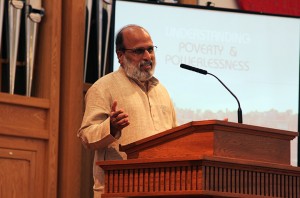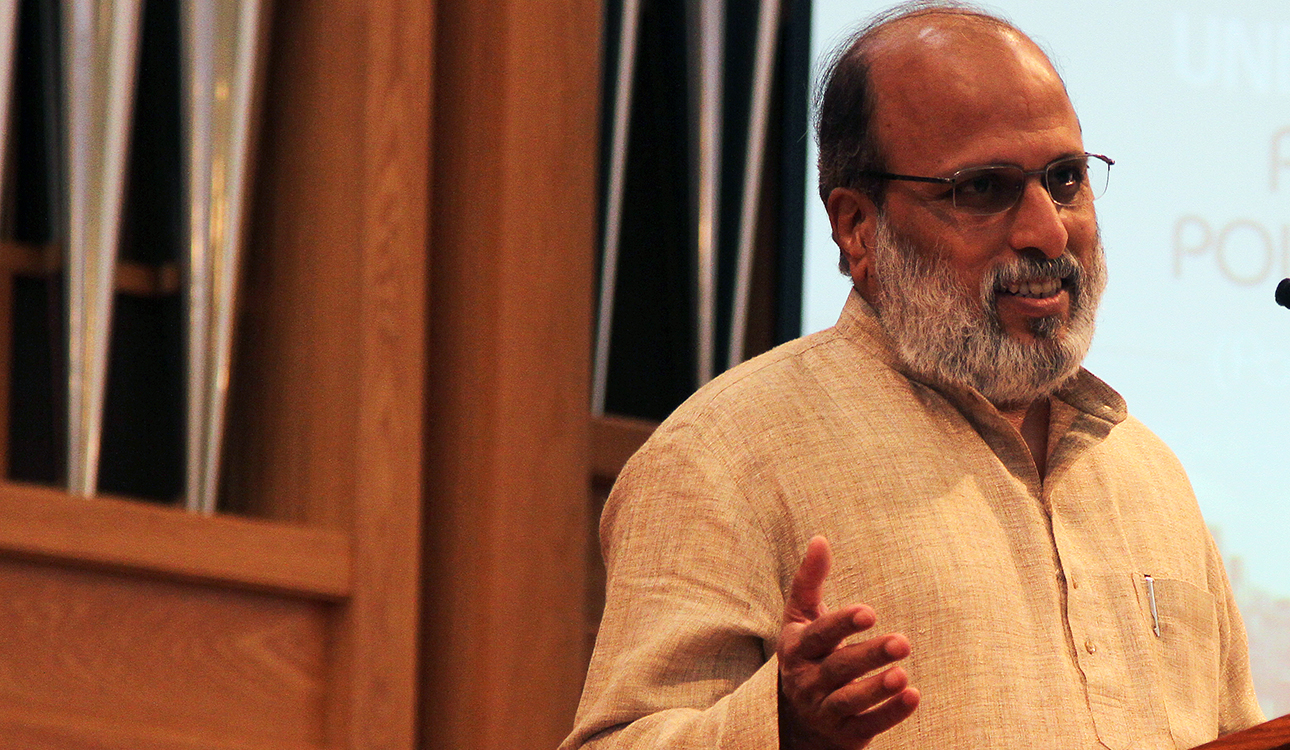
Travis Taylor | Lariat Photo Editor
Reporters
Steve Corbett stood outside a lunch line in Mexico and turned children away.
“It broke my heart,” he said, “I cried every night.”
The panel discussion Tuesday where Corbett spoke concluded the Rethink Missions Conference.
The discussion was between the keynote speakers Dr. Jayakumar Christian, Steve Corbett, Dr. Dennis Wiles and Cindy Wiles and conference participants.
The conversation pertained to participation in both global and local missions.
Corbett, co-author of “When Helping Hurts,” was running a nutrition assistance program that allowed children to have free lunches for a month if a parent volunteered for one day. If a parent did not participate, the children could not either. Corbett’s objective was community participation.
“There is tremendous power in giving,” he said.
He said he wanted the families to experience that power.
“Mission is not an occasional trip or giving,” said Christian, national director at World Vision India.
Flippin, Ark., graduate student Terra Lemeron said she felt paralyzed by the war crisis in Syria and other world issues.
She said many people feel overwhelmed and are not sure what is the best response.
“Hopelessness is the worst enemy,” Christian said.
To fight hopelessness, Dr. Dennis Wiles, senior pastor at the First Baptist Church of Arlington, said Christians need to remember that God is all-powerful.
“God calls us beyond our competency,” Wiles said. “Search for others with that competency. Do not reduce God to what you can do.”
Members of the audience wanted to talk about forming right responses to a social climate where the poor are oppressed.
At one point, Corbett asked Christian for his thoughts on the American church’s response.
“The American church can be more prophetic in its own society and push back on secularism,” Christian said.
Prophetic questions, he said, should come from prayer and studying reality and should disturb society.
“Confess that there is corruption in the church,” Christian said. “There is space at the foot of the cross for even the corrupt.”
In response to an article in Christianity Today that advocated for child sponsorship, Corbett and Christian shared their different perspectives on the subject.
“Child sponsorship can influence a middle-class family’s values and start a conversation,” Christian said. “Sponsors are great advocates for the poor.”
Corbett said he thought it fed the American individualist mentality and was an unsustainable model.
“Sponsor a community,” he said. “When you donate a dollar, what you actually get to the child is not as much as if you had just invested in the community.”
Corbett said his approach in Mexico came at a deep cost.
“It hurt to say no,” he said. “But, over time, families participated.”
The speakers proved optimistic about the future of missions.
“The world tomorrow can be better than it is today,” Corbett said.
Waco graduate student Amber Jekot attended the panel discussion.
“It showed the inner connection between our faith and social work and how the two can’t be separate,” she said. “I’m excited to see that help Waco prosper.”






